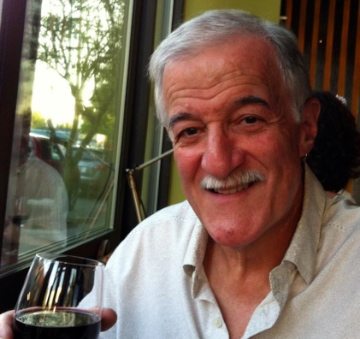I think we need to have a national conversation about the topic of energy policy, including sources, production and consumption. When it comes to hydrocarbons, we all use a huge variety of them every day. Look around you at this very moment. Anything made with plastic, polyester, nylon is made from hydrocarbons extracted from the ground. Almost everything you own is made somewhere else, and it has been transported to the store where you bought it, often from faraway places - have you ever heard of China? So I don't think we can simply stop using hydrocarbons.
Activists are protesting Arctic Ocean oil drilling (and drilling in other oceans), fracking, oil shale mining, Keystone pipeline, coal trains, oil trains, and other energy projects. But what is the Plan? Seriously. If all of these protests actually worked, what would we do for energy and all the materials we use made from hydrocarbons? Wind and solar are good alternatives, but not the complete answer.
As always, I like to use data to illustrate my points. Below are two graphs; one shows crude oil consumption in the United States, the next one shows the same for Sweden. U.S. oil consumption has trended upward since 1980; Swedish oil consumption has declined drastically since 1980. Sweden implemented a national policy with the goal of becoming the first European nation to be oil-free by 2020. (!) In 1970, oil accounted for 77% of Sweden's energy, by 2003 it was only 32%. This difference reflects a difference in societal attitudes and government policy.
Is the Plan for energy policy in the United States based on delaying the Shell Oil icebreaker from leaving Portland? What about stopping the oil and coal trains; is that the new energy plan? Obviously not. The Plan has to start at the individual level and translate into a community and societal level. I don't have much faith in Americans to be rational and realistic about energy - there is little evidence for that. Sure, in liberal islands like Portland, Oregon there is a greater communal mindset that trends towards sustainability; however, we all know that this place is not the national norm.
So go ahead Greenpeacers, dangle from the bridge, fly your banners, paddle your kayaks, and more power to you - seriously. But until you show me The Plan for energy in the United States, and convince me that the majority of Americans are willing to think, act and purchase differently, I'll smile at your stunts, but I won't be out there with you.
In future posts I want to discuss what the Obama Administration has and is doing in terms of the energy plan. The present administration has actually accomplished a lot, even when faced with the Republican majority in Congress. Is drilling in the Arctic Ocean part of the plan? I think it is. I think the federal agencies that issued the permits for the drilling have imposed the most strict conditions ever included in these kinds of permits. The Shell project is exploratory, not production. If Shell demonstrates that drilling in the Arctic can be done safely and with minimal environmental damage, then we might see oil production there in 15 to 20 years. Keep in mind that all of the Arctic is not open to drilling, only very limited portions in a very cautious way.
---



No comments:
Post a Comment